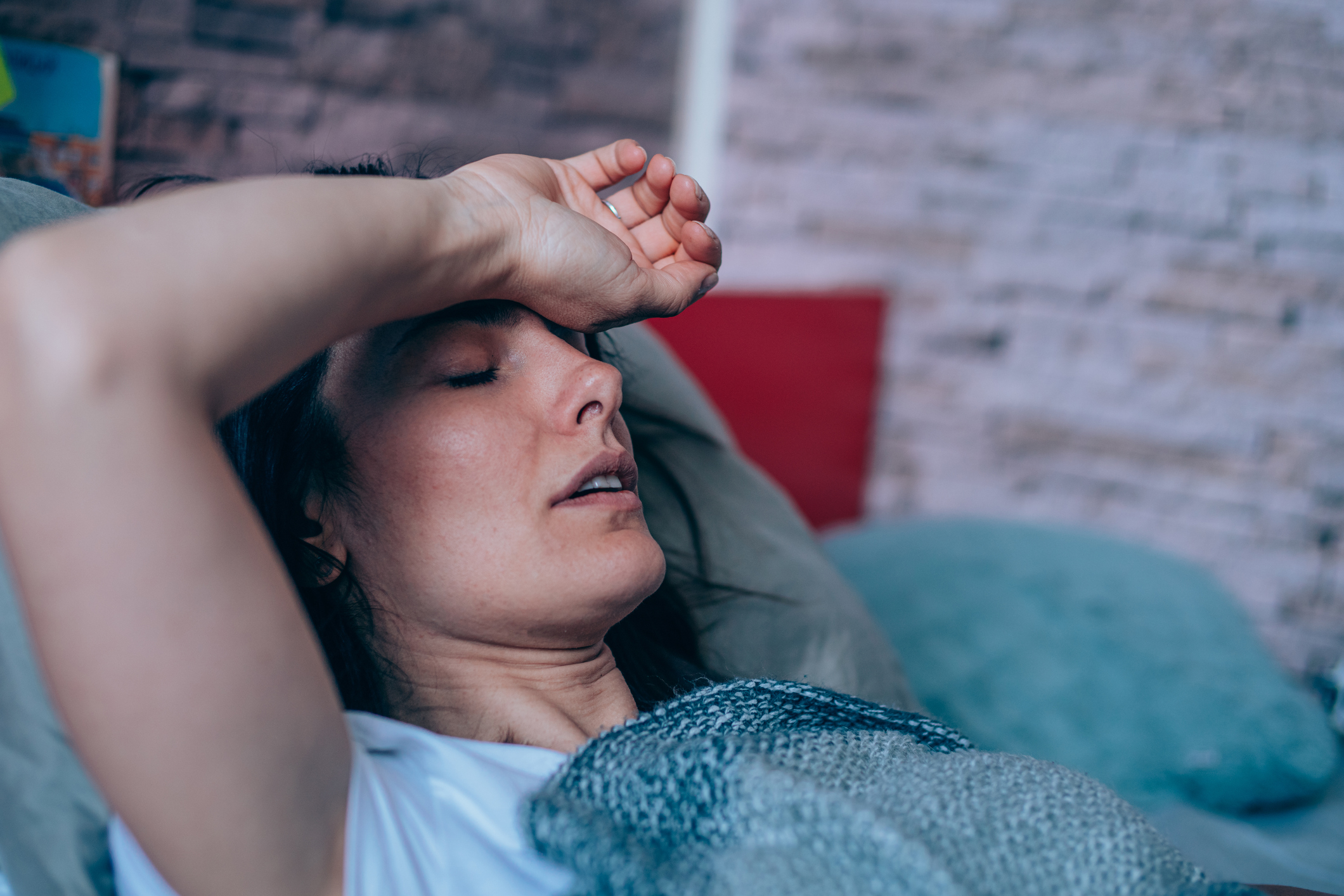Sleep apnea, a sleep disorder where your breathing stops and starts, can be treated through positive airway pressure (PAP) devices such as a CPAP machine, as well as lifestyle changes.
How It Works
Seeking a solution for your sleep apnea?

Why do I need to treat my sleep apnea?
There is an increased risk for heart attacks, strokes, depression, and diabetes, and if left untreated, sleep apnea can cause drowsiness and daytime sleepiness.
How do I know how much pressure I need?
Your healthcare provider determines the level of pressure needed. A sleep study is necessary to determine the pressure level.
What is a CPAP machine?
CPAP (continuous positive airway pressure) devices deliver a constant level of air pressure throughout the night. The machine takes in air from the room, filters and pressurizes it, then delivers it through a tube and into your mask. The air pressure keeps your tongue, uvula, and soft palate from shifting into your airway and blocking airflow, which can stabilize breathing and improve sleep quality. CPAP machines are used to treat sleep apnea.
What therapies can help treat sleep apnea?
AutoPAP (APAP): AutoPAPs can make falling asleep and staying asleep more comfortable by slowing ramping up air pressure to the prescribed level and adjusting as needed if your breathing pattern or sleeping position changes.
BiPAP: Bilevel-positive airway pressure (BiPAP) is a form of non-invasive ventilation (NIV) that is used to help and facilitate breathing. It is a method that supports inspiration and helps decrease respiratory work. The pressure is higher during inspiration and lowers during expiration.
ASV: An adaptive servo-ventilation (ASV) machine is a noninvasive device to help treat both obstructive and central sleep apnea. They provide an alternative to the more common continuous positive airway pressure (CPAP) machines for people with sleep apnea.
Doctors may also recommend lifestyle changes such as:
- Losing weight.
- Exercising regularly.
- Quitting smoking.
- Avoiding alcohol and sedatives.
- Sleeping on your side or stomach.
Why do I need to treat my sleep apnea?
There is an increased risk for heart attacks, strokes, depression, and diabetes, and if left untreated, sleep apnea can cause drowsiness and daytime sleepiness.
How do I know how much pressure I need?
Your healthcare provider determines the level of pressure needed. A sleep study is necessary to determine the pressure level.
What is a CPAP machine?
CPAP (continuous positive airway pressure) devices deliver a constant level of air pressure throughout the night. The machine takes in air from the room, filters and pressurizes it, then delivers it through a tube and into your mask. The air pressure keeps your tongue, uvula, and soft palate from shifting into your airway and blocking airflow, which can stabilize breathing and improve sleep quality. CPAP machines are used to treat sleep apnea.
What therapies can help treat sleep apnea?
AutoPAP (APAP): AutoPAPs can make falling asleep and staying asleep more comfortable by slowing ramping up air pressure to the prescribed level and adjusting as needed if your breathing pattern or sleeping position changes.
BiPAP: Bilevel-positive airway pressure (BiPAP) is a form of non-invasive ventilation (NIV) that is used to help and facilitate breathing. It is a method that supports inspiration and helps decrease respiratory work. The pressure is higher during inspiration and lowers during expiration.
ASV: An adaptive servo-ventilation (ASV) machine is a noninvasive device to help treat both obstructive and central sleep apnea. They provide an alternative to the more common continuous positive airway pressure (CPAP) machines for people with sleep apnea.
Doctors may also recommend lifestyle changes such as:
- Losing weight.
- Exercising regularly.
- Quitting smoking.
- Avoiding alcohol and sedatives.
- Sleeping on your side or stomach.



